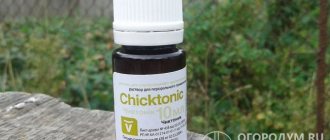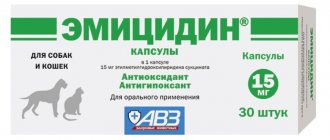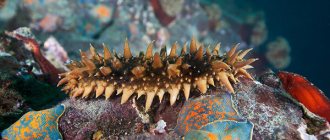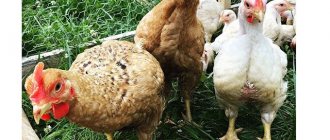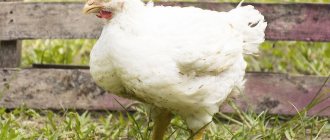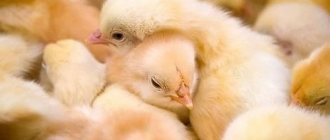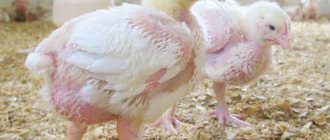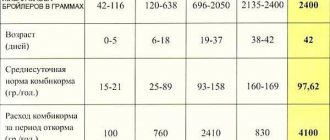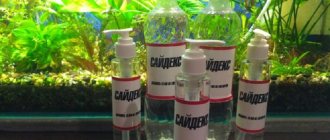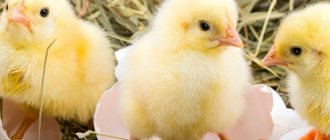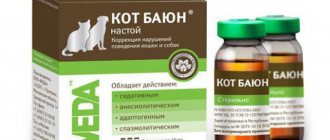Raising birds will be successful only if both young animals and adults receive high-quality feed and vitamin and mineral supplements to accelerate development and maintain productivity. But it is the chickens that require the greatest attention from the poultry farmer, because at a young age they are more susceptible to various diseases that can cause the death of the livestock.
Chiktonik is considered one of the best drugs for young chickens. This is a special food additive that is used to accelerate the growth and development of chickens. Chiktonik has been on the market for quite a long time, and during this time it has earned the trust of many experienced poultry farmers. If you have never used it on chickens before, we recommend that you read this article, which describes in detail the features of using this product.
Description and characteristics of the drug "Chiktonik"
Chiktonik is a supplement for chickens based on vitamins and amino acids. It comes in the form of a dark brown liquid that is added to water. The additive is used to increase the concentration of vitamins and amino acids in food, to prevent diseases, and improve productivity. The additive is a non-toxic, safe substance. It can be added to the diet of both adults and young animals or chickens. The drug is sold without a prescription and can be purchased at any veterinary pharmacy or pet store.
Chiktonik is approved by veterinarians. It is considered a veterinary supplement
What is Chiktonik
Chiktonik is a strong prebiotic with a rich composition. Its main task is to restore the microflora of the gastrointestinal tract. As a preventive measure, Chiktonik simply maintains the balance of microflora, but in case of treatment it can change and adjust it as necessary. It is used in different cases.
- As a premix to saturate the body of birds with vitamins and minerals;
- During times of severe stress or poor nutrition;
- For treatment after poisoning;
- For the rapid development of young individuals;
- When taking antibiotics;
- Before vaccination.
Chiktonik normalizes metabolism in birds
With regular use of the drug, its positive effects can be noted:
- The egg production of females increases;
- Birds eat food more readily;
- Individuals become mobile and active;
- The functioning of the gastrointestinal tract and genitourinary systems is normalized;
- The reproductive function of males and females improves;
- The feathers become lush and beautiful.
Interesting! Nipple drinkers are an easy way to feed birds with Chiktonik. In these designs, the water does not become clogged, so you do not have to regularly change the valuable product.
Chiktonik is a dark brown liquid. Sold in small ampoules, bottles or canisters.
Properties of the drug
Chiktonik vitamins for chickens, young and adult chickens have many beneficial properties. They improve immunity, promote healthy growth of bones and muscles, take part in metabolism, and are responsible for protein synthesis. Livestock breeders include Chiktonik in the diet of chickens to perform the following functions:
- Prevention of diseases (bacterial, viral, fungal, some parasitic).
- Stimulation of natural growth and development in young animals and chickens.
- Reduced stress levels when kept in small cages, as well as when moving and vaccinations.
- Improving productivity in laying hens, improving egg quality.
The drug can be given to achieve one or several goals at once. The method of application and dosage depends on the total number of birds, as well as their age (chickens need to reduce the dosage). The drug is adapted to the needs of chickens. But it can also be given to other animals (ducks, geese, sheep) after consultation with a veterinarian.
Possible contraindications and side effects
The drug is contraindicated in case of hypersensitivity of the bird's body to the components included in the composition..
There are no side effects if the rules of use and dosage specified in the instructions for use of the probiotic are followed.
special instructions:
- Poultry products can be used without restrictions after consuming Chiktonik;
- The product is compatible with other feed additives and medications.
When working with the drug, it is recommended to follow the rules of personal hygiene and general safety measures.
Vitamins and minerals
Composition of the drug Chiktonik on the packaging
The drug contains a complex of vitamins and amino acids that perform a number of important functions in the chicken body. We list the main components and their functional purpose:
| Vitamin A | Responsible for the growth of bones, muscles and some organs, strengthens the immune system |
| Vitamin D3 | Helps absorb calcium, improves skeletal formation |
| Vitamin E | Responsible for the growth of muscles and some organs, improves immunity |
| B vitamins | Responsible for the absorption of proteins, fats and carbohydrates, form blood cells, support intracellular respiration |
| Vitamin K3 | Seriously improves immunity in chickens, young animals, and adults; minimizes the risk of mortality |
| Amino acid methionine | Acts as a source of sulfur, responsible for the formation of plumage |
| Amino acid lysine | Participates in protein synthesis, improves calcium absorption, improves immunity |
| Amino acid histidine | Participates in metabolism, strengthens the bones and muscles of chickens |
| L-configuration of aspartic acid | Improves the quality of egg shells in laying hens, increases the survival rate of chickens during incubation |
| Amino acid trionine | Synthesizes digestive enzymes, improves immunity |
| Amino acid serine | Improves muscle and feather formation in birds |
| Amino acid proline | Forms tendons, ligaments, heart muscles |
| Amino acid glycine | Forms plumage in adult birds, stimulates growth and development in young birds |
| Glutamic acid | Stimulates the growth and development of the body (vital for chickens) |
| Amino acid alanine | Takes part in protein synthesis, participates in the formation of immunity |
Indications for use for poultry
Chiktonik for birds has the following indications for use:
- prevention of metabolic disorders;
- strengthening the immune system;
- acceleration of growth of young animals;
- increasing egg production in laying hens;
- after treatment with medications (antibiotics, coccidiostatics) or vaccination;
- increasing stress resistance;
- treatment of mycotoxin poisoning;
- rehabilitation period after infectious and parasitic diseases.
Chiktonik for broilers is used to help birds gain muscle mass more quickly.
Use of vitamin Chiktonik for chickens
Chiktonik is included in the diet of adult chickens for various purposes. This can be stimulating development and growth, reducing stress, increasing productivity, and preventing disease. For use, the drug is diluted in water and given to birds individually or in groups (through a watering system). The dosage and duration of use depends on the purpose of using the drug. Below we will look at the main scenarios for using Chiktonik.
Stimulating development and growth
Chiktonik is often given to young animals to stimulate development and growth. The method of application looks like this:
- 1 ml of the drug is diluted in 1 liter of water. The resulting solution is enough for 10 heads. If you keep more chickens, the dosage should be increased proportionally.
- It is recommended to give the medicinal solution once every 5-7 days during the period of growth and development of chickens. Respite periods (without using the drug) are not recommended.
Note! Adult chickens do not grow, so they do not need to be given Chiktonik to stimulate growth and development.
Reducing stress load
Chiktonik is useful when keeping chickens in cages
Research shows that Chiktonik reduces the stress that birds experience when kept in captivity. This drug is especially useful in the case of breeding chickens in small cages where there are a large number of birds. The drug can be given to young animals and adults. Directions for use to reduce stress:
- For prophylactic use, 1 ml of the drug is diluted in 1 liter of water. The solution is given once a week, and this solution is enough for 10-20 animals.
- In case of vaccination, 1-2 ml of the drug is diluted with 1 liter of water, the solution is enough for 10-20 animals. The medicine must be given within 3 days before vaccination.
- In the case of transporting birds, 1-2 ml of the drug is diluted in 1 liter of water, the solution is enough for 10-20 birds. The medicine should be given 3 days before and 3 days after transportation.
Chiktonik and productivity
The medicine can also be given to improve production in laying hens. The use of the medicine increases the frequency of oviposition and also improves the quality of the eggs themselves. Directions for use: 5-6 ml of the drug is diluted in 1 liter of water, the medicine is enough for 10 individuals. In the case of a smaller number of laying hens, the dosage is proportionally reduced. The solution should be given during the period when oviposition begins for no more than 5 days . The procedure can be repeated after 1-2 months.
Prevention of possible diseases
Chiktonik can be given to adult chickens to prevent various diseases. Vitamins enhance the immune response, which allows you to quickly cope with infection and reduce mortality. looks like that:
- Preventive use: 1-2 ml of the medicine is diluted in 1 liter of water, the solution is enough for 10-20 individuals.
- The medicinal solution is given once every 2 weeks, during seasonal infections - once every 1 week.
Side effects
If the dosage rules are followed, the drug is safe for the health of chickens (adults, young animals, chickens). Side effects may occur due to an overdose of vitamins and/or due to individual intolerance to the components of the drug. Side effects occur extremely rarely (less than 0.1% of cases), most often they are as follows:
- Deterioration in the bird’s well-being (it becomes lethargic, passive);
- Reduced egg production in females;
- The appearance of a mild rash on the body.
If side effects are detected, the dosage of the drug should be reduced by 15-20%. If after 2-3 days there is no improvement, the dosage should be reduced again by 15-20%. The reduction should be repeated every 2-3 days until the side effects go away completely. The medicine is compatible with other drugs and medicinal supplements. Chicken eggs and meat are completely safe and edible.
Note! The list of side effects from Chiktonik does not include the death of a bird. Therefore, a chicken cannot die from an overdose of the drug. If chickens begin to die after introducing the drug into the diet, then look for the cause in other factors. For example, bad water, hidden infections, poor conditions in the chicken coop.
Characteristic
The feed additive consists of:
- water-soluble B vitamins (B1, B2, B6, B12);
- fat-soluble vitamins: A, D, E, K;
- nonessential amino acids;
- essential amino acids.
The vitamin complex is used to maintain the immunity of chickens in the first months of life and fast-growing broilers. Increasing resistance to diseases significantly increases the survival rate of young animals.
Chiktonik is further used for chickens throughout the productive period of their life.
Storage and shelf life of the drug Chiktonik
The drug is available in the form of a liquid, bottled in opaque bottles of various sizes - 25 ml, 100 ml, 250 ml, 500 ml, 1 l, 5 l. The medicine should be stored for no more than 2 years from the date of release (date indicated on the label and/or cap). After the expiration date, the drug does not become toxic. But its effectiveness decreases - many vitamins and amino acids break down into simpler components.
The drug is stored in a dark, dry place at an air temperature of +5 to 20 degrees. Animals and children should not have access to the medicine. It is not recommended to pour the drug into liquid containers. The reason is that exposure to light causes the breakdown of some vitamins, which will reduce the effectiveness of the medicine.
Feedback from farmers about Chiktonik
Chiktonik is not a new tool in farming. It has been tested by breeders in different regions of Russia and other countries.
- Natalia Ogurtsova : “I buy Chiktonik for chickens of different ages. It has a good composition. Unfortunately, we don’t have large bottles of this product in our stores, so we have to buy 50 ml, but I want to try ordering it online, I hope the quality won’t let you down. As for the effect of the drug, I can say one thing - for laying hens this is an indispensable remedy. I give it several times a year, the females give a lot of eggs after it, the color of the yolk improves, the shell is strong and of normal color. The appearance of the birds also improves. There are no more bald patches, bare necks, the birds are neat, beautiful - I just couldn’t be happier!”
- Dmitry Ivanovich : “For the birds that I breed, I have been using Chiktonik for several years now. Not only does it make them more resistant to disease, but it also improves their plumage and condition. Ducks and chickens are becoming more active and inquisitive; I noticed that not only egg production has increased, but also poultry meat has become tastier and more tender. The young animals are growing by leaps and bounds. I recommend it, first of all, to young, inexperienced breeders in order to reduce mortality and quickly adapt to breeding poultry.”
- Vladimir Rozhkov : “Among the different types of premixes for poultry, I use Chiktonik. This is the best option in terms of price-quality ratio. The product is effective, fast-acting and has never failed. Its action is complex, and it is also suitable for birds of any age. I use it for chickens, ducks and turkeys. I haven’t tried it for quails, but in principle I don’t breed geese.”
Chiktonik is a useful supplement that can be used to treat or prevent various ailments. Thanks to its rich composition, it increases the immunity of birds, and also improves the absorption of various beneficial substances that birds receive from food. When used correctly, birds practically stop getting sick, have a beautiful, well-groomed appearance and are highly productive.
How to use Chiktonik for chickens
Chiktonik is given not only to adults and young animals, but also to chickens that have recently been born. Below we will find out why to do this and how to dose the vitamin supplement correctly.
Purpose of the drug
Chiktonik is given to chickens for the following purposes:
- Prevention of bacterial, viral, fungal infections. Young chickens have weak immunity, and vitamins can “strengthen” it, which reduces mortality.
- Stimulation of growth and development. Livestock farmers also add a vitamin supplement to the diet of chickens to improve the growth of bones, muscles, and internal organs.
- Reducing stress. A vitamin supplement can be given to chickens if you are transporting them to a new place. This way they won't have any unnecessary stress.
Note! It is not necessary to give the drug to chickens to reduce cage stress. After all, young individuals tolerate living in cages better.
Dosage and frequency
- Disease prevention: 1 ml of the drug is diluted in 2 liters of water, the solution is enough for 10 individuals. The medicinal solution is given every day from 8 to 14 days of life.
- Stimulation of growth and development : 1 ml of the drug is diluted in 2 liters of water, the solution is enough for 10-15 individuals. The drug is given once every 3 days, starting from the 10th day of the chicken’s life.
- Reducing stress: 1 ml of the drug is diluted in 1 liter of water, the solution is enough for 10 individuals. The drug is given 2 days before and 2 days after transportation. Chicks must be at least 7 days old.
What is Chiktonik
This is a drug that improves the internal intestinal microflora and is part of the group of probiotics. Chiktonik, so to speak, vigilantly “monitors” the state of the microflora and, at the slightest disturbance, returns it to its normal state.
Chiktonik is widely used when raising broilers, when the presence of drugs in their meat is not acceptable. Chiktonik allows you to avoid the threat of disease and even do without vaccination and raise healthy broilers.
So, Chiktonik for chickens contains the following elements:
- Balanced set of amino acids;
- Essential vitamins A, B and E;
- Enzymes that promote the production of valuable lactobacilli.
Chickens that were regularly given Chiktonik had no digestive problems, no cases of diarrhea or illnesses. In addition, the drug helps to neutralize poor living conditions, the effects of stress and the consumption of low-quality food. The beneficial qualities of Chiktonik for chickens have been proven by scientists and noticed by farmers in their personal backyards.
If you use proven feed when raising poultry and regularly feed Chiktonik, many problems can be avoided.
Drug analogues and prices
Chiktonik is sold in pet stores and veterinary pharmacies, as well as on the Internet. The cost of the drug directly depends on the volume. The average cost of 100 ml is 300-400 rubles. Analogues:
- Gammatonic. The composition is 80% identical to Chiktonik, but additionally contains useful microelements. Available in the form of a liquid for preparing a medicinal solution. It is given in approximately the same way as Chiktonik. The cost of 100 ml of Gammatonic is 250-350 rubles.
- Aminovital. It is a simplified version of Chiktonik (does not contain some vitamins and amino acids). Available in liquid or powder form (both soluble in water). It is used according to a similar scheme, but the dosage of the drug is higher. The cost of 100 ml of Aminovital is 100-150 rubles.
- Vitafl esh Amino WSP. Vitamin supplement containing protein (but without amino acids). Sold in powder form for dilution in water. It is used mainly for the prevention of diseases, as well as to stimulate growth in chickens and young animals. The cost of 100 g of Vitaflesh Amino WSP is 900-1000 rubles.
The drugs are compatible with each other, so they can be used in combination. But do not forget about the dosage rules.
Chiktonik is a vitamin-amino acid supplement in the form of a liquid that can be given to chickens. The medicine contains many useful substances. These are B vitamins, vitamin K3, vitamin A, methionine, glycine, proline, alanine and other substances. It can be given to adults and chickens for various purposes. Most often, Chiktonik is given to prevent diseases, increase egg production, stimulate growth and development, and reduce stress. The drug costs 300-400 rubles per 100 ml bottle.
Features of the Chiktonik feed additive
The peculiarities of the product determine its high concentration of useful substances, each having a certain spectrum of effects on the chickens’ body. To fully understand the picture and effectiveness of the drug, you should analyze the composition and effect of the components on the body:
- Vitamin A is a component that accelerates and normalizes development and weight gain in birds. Additionally, it has an antimicrobial effect and increases the effect of immunity. improves animal reproduction;
- Vitamin D3 – actively affects the formation and strengthening of bones for birds. A possible drawback, but in high doses, is improper formation of legs in young animals. Also, consumption for chickens can cause growth retardation, sometimes lethargy, and inhibition of motor activity;
- Vitamin E – helps prevent the formation of dystrophic pathologies of the stomach, prevents the formation of large deposits on the heels. The properties resemble those of an antioxidant;
- Vitamin B1 is an important substance for the development of muscle mass. If the body lacks this component, then suppression of appetite and digestive disorders are observed. Sometimes accompanied by disturbances in the systems of nervous communication and blood circulation, the functioning of the heart muscle;
- vitamins B2, 6, 12 – prevents the formation of death of the nervous system. Visually manifests itself in the form of paralysis of the limbs, possibly cramped fingers that the bird cannot unclench and convulsions. Reduces the concentration of negative substances, which blocks diarrhea and feather fragility;
Feather loss in chickens
vitamin K – improves blood clotting function, which serves as a high-quality prevention of anemia;
amino acids – improve appetite, which increases weight gain in birds;
Choline chloride is a substance to prevent the development of paresis in birds; the typical age for it to be affected is 3-4 week old animals. The disease provokes a loss of mobility, dislocation of the legs or wings is possible, and the joints are subject to deformation;
Inositol – acts as a regulator of the digestive function of the body. It is extremely important for normalizing nutrition in weak, skinny individuals. Used for its general strengthening properties;
lysine - this component is important for birds, as it allows the production of feather-type protein and the formation of skeletal tissues. If the body lacks a substance, then the muscles undergo dystrophy and valuable meat is lost, worsening its quality;
biotin is a microcomponent that has a positive effect on tendons and feathers. Accordingly, its deficiency leads to the formation of dystrophic reactions in these tissues
Ultimately, it can lead to displacement of the joints and bones in them;
glycine is an extremely important substance for the development of young animals, since the synthesis of the component does not occur in their body; after reaching a certain age, the production of glycine begins. It is an amino acid that promotes the rapid and proper development of chickens.
Chiktonik is a complete complex of beneficial substances that affect the entire body and every area. It allows you to normalize the microflora in inferior individuals, but is more often used to prevent the development of diseases and accelerate growth.
Chiktonika release form
Additional information about the drug
Chiktonik has been produced in Spain for 30 years, during which time it has become one of the best and favorite products among poultry farmers. Farmers who have used the drug note the extraordinary effectiveness of the complex and its beneficial effect on birds.
Despite its complex composition and wide spectrum of action, Chiktonik cannot completely replace a balanced diet. Therefore, in addition to taking the drug, it is necessary to take care of a good diet for the livestock.
Meat and eggs of birds that consumed Chiktonik can be used for food without any fear.
Infectious diseases of young chickens
The health of the bird directly affects the farmer’s capital, which is why it is so important to monitor its behavior and periodically inspect it for diseases. Particularly dangerous are infectious diseases that are contagious and can lead to the death of the entire brood.
It is divided into 3 types:
Particularly dangerous are infectious diseases that are contagious and can lead to the death of the entire brood. It is divided into 3 types:
- bacterial;
- parasitic infections;
- viral.
Salmonellosis, pasteurellosis, tuberculosis, laryngotracheitis, influenza, smallpox and coccidiosis pose a great threat to life. Many of these ailments can be successfully treated. There are also a number of prophylactic agents to prevent them, which are present in any veterinarian's kit.
Sick chickens tend to lose their appetite.
The most common diseases of chickens
Farmers with many years of experience know that young animals are characterized by 3 periods of formation, during which the chance of contracting any disease is quite high. They fit within a time period of 1 to 40 days, during which you should be extremely attentive to the health of the chickens.
| Disease | Description | Symptoms | Treatment and prevention |
| Aspergillosis | A very dangerous virus that destroys the respiratory organs of chickens. | Lethargy, depressed state; the appearance of wheezing in breathing, almost complete loss of appetite. | Antibiotics are used as prescribed by the veterinarian. You should also exclude the presence of drafts and keep young animals in dry, warm rooms. |
| Salmonella | It mainly attacks chicks by airborne droplets. | Watery eyes; inflamed intestines and cloaca; complete loss of appetite, diarrhea, swelling in the legs, developmental delays. | A course of furazolidone and streptomycin is prescribed. For preventive purposes, chickens are given injections of immune serum. |
| Pullorosis | A very common disease among young animals, infection can occur in the mother's womb. | Diarrhea, which manifests itself through liquid white feces, intermittent breathing, shortness of breath, increased thirst, weakness. Chickens fall on their feet all the time. | Young animals should be placed in an isolator, biomycin should be applied, and furazolidone should be added to the feed. You should also ensure regular ventilation of the chicken coop. |
| Rickets | The most common disease among young animals associated with a lack of vitamin D in the body. | Chicks constantly fall on their feet, the development of the chicks slows down, and they are constantly in a depressed state. | It is necessary to take a course of vitamins and use feed with a high calcium content. |
| Escherichiosis | The disease greatly weakens the immune system. It is mainly transmitted to chickens from their parents. Characterized by a high mortality rate. | The chicks constantly wheeze, move little and show no interest in food. | Neomycin, ampicillin and gentamicin are recommended. |
For what diseases is Chiktonik used?
The prebiotic preparation is suitable for eliminating diseases, mainly digestive functions, and returning the optimal state of microflora. When using Chiktonik, a sufficient number of beneficial bacteria is maintained and, if necessary, created.
Chiktonik is not used as a medicine in the literal sense of the word, as it does not have a pronounced therapeutic effect. Recommended for use as a preventive measure or in the following situations:
- A lack of vitamins and useful components in the bird’s body may be due to climate, lack of quality feed, or expressed visually on the bird.
- The presence of stress in the animal - transportation is being carried out or the character of the animal makes itself felt.
- Unbalanced diet - food is poor in nutrients.
- Preparing the body before vaccination.
- Poisoning with any toxins.
- Long-term use of antibiotics is a high risk of another type of secondary infection, for example, a fungus.
- Acceleration of chick growth and muscle development.
- A period of increased need for nutrients, for example, during the development of young animals.
Transportation is a source of stress for birds
The use of the drug ensures good quality of poultry health:
- the tone of the bird’s body improves significantly;
- the quality of feathers and the health of the cover becomes higher;
- appetite is stimulated;
- the absorption of useful microcomponents improves, as the efficiency of feed and live weight increases;
- puts in order the function of removing waste substances, in the absence of inflammatory processes;
- the functioning of the gastrointestinal tract returns to normal;
- the egg production of the bird improves, and accordingly the quality of the product is at a higher level, because some of the vitamins remain in the egg;
- a positive effect on the reproductive system of animals was noticed.
Chiktonik has a positive effect on the feather cover of birds
Scientists note that animals that consumed Chiktonik have several times higher levels of immunity and better gastrointestinal tract condition. The prebiotic preparation not only improves the quality of life of birds, but is also accompanied by economic efficiency, since the meat yield from the animal increases. A similar situation is observed with regard to egg production, the quality and quantity of eggs increases. It is also possible to save significantly more young animals from disease and possible death.
This is interesting: What to feed broilers at home for rapid growth (video)
Storage
The manufacturer recommends storing the complex in a dark place away from sunlight. It is important that small children and pets do not have access to the storage area. The optimal temperature is 5–25 ℃. If you follow these simple recommendations, the drug retains its properties for two years.
Chiktonik is a real salvation for farmers who care about the health of their charges and want to raise a well-fed and healthy herd. Using the complex, even inexperienced farmers can achieve excellent results in poultry farming, since the product has a gentle effect on the bird’s body, improving immunity and other important functions.
